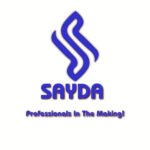Our Job Search Advice
Placing You First
While every major is valuable, some majors have more structured career paths. If you majored in civil engineering or agriculture, for example, there’s a good chance you’re going to enter one of those fields. But if your major gave you the freedom to explore different career paths – maybe you majored in business management, english, or general studies – you might be left feeling unsure exactly where you fit and what you want to do after graduation.
It’s OK – here are some ways to explore some fields and roles that could be a good fit:
By researching what you’re interested in before jumping into applications, you can make sure you feel comfortable with the role and find something that best aligns with your skills.
Nearly every job application is going to require a resume and oftentimes, it’s the first thing an employer sees before deciding if they want to move forward with your application. To make a good impression right away – and to increase your chances of getting called for an interview – be sure that your resume includes your most relevant experience and is easy to navigate.
When preparing your resume for the job search, here some tips to keep in mind:
In addition to your resume, some companies may ask you to submit a cover letter. While this isn’t very common if you’re applying for a quantitative role – think finance, tech, and engineering – if you’re applying for a position in consulting, marketing, media, or sales, you’ll probably be asked to submit a cover letter as a way to show off your communication skills.
Besides your cover letter and resume, your LinkedIn profile can show off your professional identity to employers and can even help you get discovered by recruiters.
A guide on creating an awesome LinkedIn profile and a guide to building your brand on LinkedIn, but here are the highlights below:
Introducing yourself to someone new is always nerve-wracking. When you’re trying to impress a professional contact that might be able to help you get a job, it’s even scarier. How do you introduce yourself? What if you run out things to say? The good news, most people you’ll meet through networking events are happy to meet new people and as long as you’re friendly and curious, there’s a good chance you’ll have a great conversation.
If you’re still worried, here are some tips to guide you through your next networking opportunity:
When it comes to navigating career fairs and other on-campus recruiting events, you probably hear the same set of advice – bring your resume, dress professionally, and be friendly. But standing out among the crowd of your business-casual, resume-toting peers can prove to be a challenge.
Here are our top tips for impressing the recruiters that are visiting from your dream company:
Consider informational interviews as the happy medium between networking events and career fairs. With an informational interview, you have the chance to learn more about an industry and a particular role before you apply. Unlike a career fair, there might not be a specific position available but you still have the chance to get on the radar of a company. And unlike networking, you don’t have to worry about asking too many questions – this interview is intended to provide you with specific information and help you get on the company’s radar.
If you have the chance to set up an informational interview, be sure you research the company ahead of time and prepare some specific questions. You don’t want to use the time you have to find out public information on the company, so make sure your questions are geared toward the responsibilities of the job and what it’s like working for the company.
Here are some smart questions to ask to get the conversation going, and to provide some insight into this person’s career:
While having a great resume and strong networking skills can help you in the job search, utilizing the professional relationships you’ve built through networking, past internships, and college classes can help you find exciting opportunities as well as teach you a lot about the professional world. If you’re still a year out from your job search, here are some tips for building and maintaining relationships with people who can help you grow professionally:
A former internship supervisor
Someone you met through networking
Past and present professors
Past professors, supervisors, or networking contacts may know people in the industry they can connect you with for an informational interview or job opportunity. They can also serve as a valuable professional reference, providing you with a letter of recommendation or reference call.
Hopefully all the work you put into networking, relationship-building, career fairs, and perfecting your resume and cover letter will lead to that next step: The Interview.
Are you a student looking for awesome entry-level jobs and internships? Join our (Sayda Premium Group) and get matched with exciting opportunities from top companies. Click Here.
